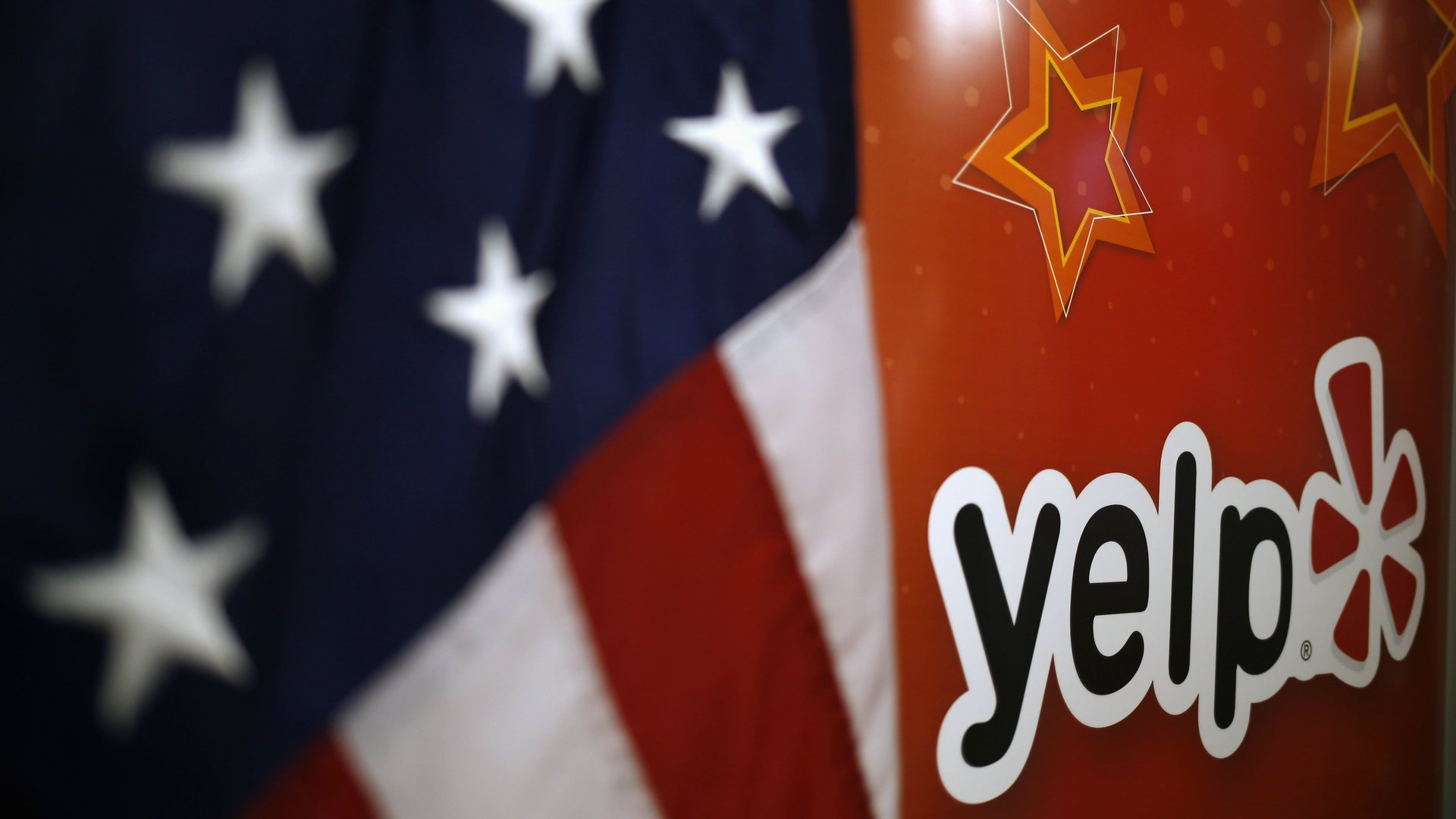Yelp isn’t responsible for businesses burned by users’ bad reviews, a US court rules
Go ahead. For now, you’re safe to log on to Yelp and leave that scathing one-star review.


Go ahead. For now, you’re safe to log on to Yelp and leave that scathing one-star review.
The 9th US Circuit Court of Appeals has ruled the website is not responsible for the reviews that people post. So even if a restaurant or company disagrees with the veracity of a review that has damaged its reputation, suing Yelp for libel isn’t going to help.
The court’s ruling is another flashpoint in an ongoing legal debate that has persisted since the 1990s, when Congress carved out a provision in the 1996 Communications Decency Act allowing websites to offer neutral tools for third parties to post content. At the crux of the debate is a question of whether the freedom to exchange ideas online is worth the potential consequences that come with it.
To be sure, sites such as Yelp have democratized a service long controlled by media companies. The review site launched in the Seattle area in 2005, and after just four years boasted reviews that rated at least 70% of the city’s restaurants, according to Harvard Business School. By comparison, the city’s preeminent newspaper, The Seattle Times, had only reviewed about 5%. And those reviews matter, the Harvard study found:
…each ratings star added on a Yelp review translated to anywhere from a 5 percent to 9 percent effect on revenues (depending on the control variables and means of estimation).
Yelp reviews aren’t confined to the restaurant industry. Not even the US National Park Service is beyond the grip of people eager to fire off angry comments about their experiences. One person said Pinnacles National Park in California was a “prime example of wasteful government spending.” Another person complained Grand Canyon National Park was, “more like ‘Mediocre canyon’.”
There is at least one instance in which a court ruled against Yelp. In June, a California appeals court affirmed the 2014 decision by lower court that the site had to remove an angry review posted by a woman about a law firm. The woman wrote a one-star review accusing the firm of “making a bad situation worse,” which prompted the law firm to file a lawsuit claiming defamation, among other things.
Yelp argued removing the review would “injuriously affect” its website. A judge didn’t buy it, and ordered the company to remove the woman’s review anyway.
The case recently reviewed by the 9th US Circuit Court of Appeals was originally brought by a locksmith company, which contested a one-star review alleging the company overcharged and was slow to respond. The locksmith has said it plans to appeal the court’s decision, stoking the evolving debate between technology and the US legal system.